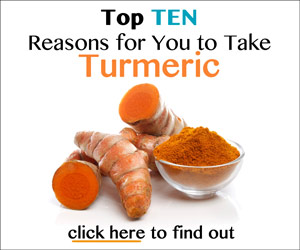Herbal Turmeric Help for Inflammatory Bowel Disease

Crohn's disease and ulcerative colitis are both forms of inflammatory bowel disease (IBD). The conditions are chronic, and patients suffer from recurrent bouts of discomfort and even painful symptoms. Clinical and animal studies suggest turmeric and its curcumin compounds could help safely relieve symptoms and reduce relapse rates for patients with IBD. (vii.131, 158-159)
What Are the Similarities and Differences Between Crohn's Disease and Ulcerative Colitis?
Both conditions share symptoms in common, including: (vii.158)
- Abdominal pain and cramping.
- Blood and mucus in stool.
- Diarrhea.
- Increased urgency of bowel movements.
- Nausea.
The main difference between the two is where the inflammation (due to an overactive immune system response) occurs: (vii.131)
- Crohn's disease inflammation can occur anywhere in the bowel and intestines. Although it mostly affects the gastrointestinal system, Crohn's disease is actually a systemic disorder. It can involve the joints, skin, eyes, liver, kidneys, and blood.
- Ulcerative colitis inflammation occurs only in the colon and rectum.
IBD Linked to Higher Risk of Colorectal Cancer
Both forms of IBD are associated with 5-7 times the risk of developing colorectal cancer. In fact, over 40% of people with ulcerative colitis develop the disease over time. (vii.160)
However, there are ways to significantly reduce that risk. For example, taking substances that block inflammatory molecules decreases the risk of colorectal cancer by almost 80% in patients with IBD. Turmeric contains more than one compound that does just that. (vii.20, 49, 160)
What Are the Causes of and Risk Factors for IBD?
Doctors don't know the exact cause of IBD. However, they think that both Crohn's disease and ulcerative colitis may be caused by an overactive immune system response to microbes in the intestine. In people that are genetically susceptible, this dysfunctional immune response could occur under certain conditions: (vii.131, 161)
- The intestinal lining becomes more permeable and causes too much exposure and contact between the microbes and the immune system.
- The innate immune system fails to recognize the bacteria as part of the normal microbial environment in the gut.
Researchers have identified certain factors known to be associated with increased susceptibility or risk of developing the disease. These include: (vii.131, 162-163)
| Crohn's Disease | Ulcerative Colitis |
|---|---|
|
|
Recent population, hospital, and clinic studies from around the world indicate that in highly developed northern Europe and North America Crohn's disease is now more prevalent than ulcerative colitis, while in developing areas of the world (e.g., eastern European countries and Asia) ulcerative colitis occurs more often. Despite these differences, an emerging trend everywhere is the increasing prevalence of both IBD conditions in males. This is a marked change from the past, when Crohn's disease was 30% more prevalent in women. (vii.164)
Join the 1000s of People Who Are Discovering the Benefits of Turmeric.

Healthceuticals® Turmeric Curcumin Complex
100% Certified
Organic ingredients
- Organic Turmeric Extract - standardized to 95% curcuminoids.
- Organic Whole Turmeric - provides full spectrum antioxidant, anti-inflammatory turmeric benefits, including turmerones and numerous vitamins, minerals, and phytonutrients
- Organic Black Pepper Extract - standardized to 95% piperine; dramatically enhances bioavailablity.
- Organic Phospholipids - markedly improve absorption.
- Organic Ginger - works synergistically with turmeric to provide more powerful benefits.
- Absolutely FREE of potentially harmful additives and fillers such as magnesium stearate.




